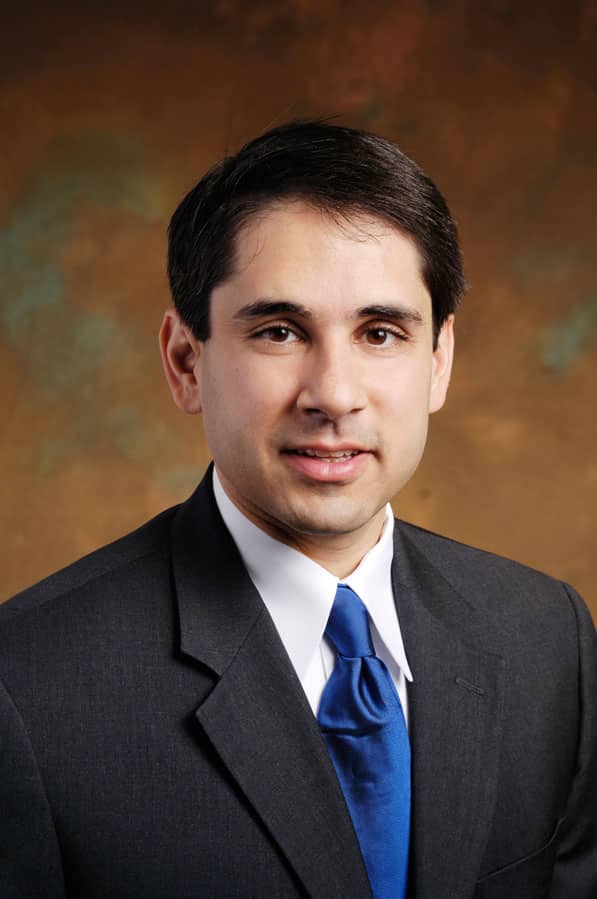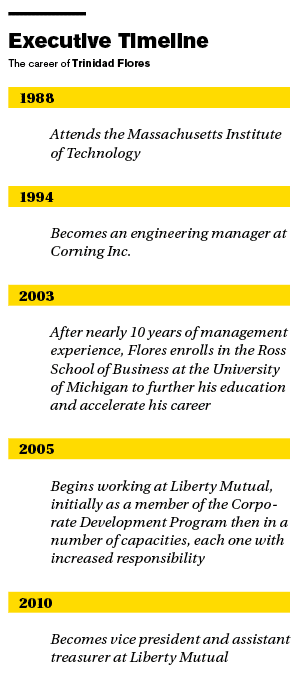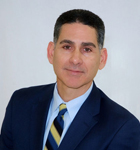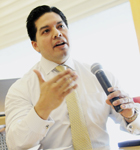
What was it about the engineering field that appealed to you?
I didn’t select MIT so much as I selected a chance to excel and a desire to be the best. When I started to look at where I wanted to go to school, most of my peers at the time were looking at local colleges or state schools in Ohio, but I typically tend to swing for the fences. I looked at MIT and it was the number-one ranked school for engineering and I thought, “I could go there.” So I applied and I got in.
What facilitated the change in focus to finance?
My perspective is that I didn’t really switch careers. I would say the majority of time spent in that early phase of my career was general-management oriented; it was operations-engineering management, so I shifted away from [a] technical focus toward a broader strategic and leadership role early on.
I wanted to gain insight into how to find customers, how to market the product, how to look at things from a broader business perspective. I decided to get that sort of perspective, I needed to get an MBA, so I went to the University of Michigan. While I was there I realized I really loved general management; that didn’t change. I also gained an interest in finance and decided to refocus my career in financial services and apply technical skills and knowledge on understanding the economics of a business. I loved the opportunity to work in financial services because you can look at it from the perspective of how to apply technical skills and technical knowledge to understand the economics of the business.
Describe the role you have at Liberty Mutual as vice president and assistant treasurer.
I’ve spent the last four years in a number of different financial roles, each one with higher levels of responsibility, culminating in the one I have now, which is vice president and assistant treasurer. Mainly my responsibilities center around capital management. First and foremost, [it includes] ensuring we have the cash to pay our bills [laughs]. The other focus that I have is looking at the market, identifying what competitors are doing, and looking for a competitive advantage.
 Can you expand on your work with ALPFA [Association of Latino Professionals in Finance and Accounting] and why you feel it is important?
Can you expand on your work with ALPFA [Association of Latino Professionals in Finance and Accounting] and why you feel it is important?
There are a few things that I do with them both as a member and as a representative for Liberty Mutual. I am a relationship manager for ALPFA from Liberty Mutual’s perspective. This allows me to negotiate not only the services that are being provided, but also the partnership opportunities and the values and benefits of that relationship. I also serve as a member, so I attend meetings, facilitate panel discussions, organize guest speakers. All of this for young professionals and college students to come and learn what it’s like to work in a business setting or a finance role. It’s a great opportunity to talk to people and tell them, these are the challenges that I ran up against and this is how to mitigate some of those challenges.
How do you continue to be involved with the business school at the University of Michigan?
Because I’m located in Boston, when the business school holds functions out east, I can attend them and provide insight, talk to people about the program, and answer questions in a context that is very nonthreatening. Then on the flip side, I also serve the school in the capacity of an actual recruiter and interviewer. When people apply for the business school I will serve as an interviewer and make a recommendation on whether or not they should get into the program. I also recruit MBA graduates from the U of M [University of Michigan] into Liberty Mutual.
You frequently advise Latino professionals. Why do you feel it is important to help cultivate a network and a sense of community within Hispanic professionals?
It’s about having a common culture and a common heritage. I know the trails and the efforts that I went through when I was growing up, what I did, and how I found myself in the position I’m in today. It was a product of the drive that I had but it was also making sure that I had the patience. You’ll always have stumbling blocks but you find ways around them or you change course depending on what’s necessary. One of the strengths of the Hispanic community is the support and sense of extended family. It’s just a matter of finding how you can extend that beyond your family and into a broader professional community. I find that for Hispanics, it’s actually easy for us to do that.

